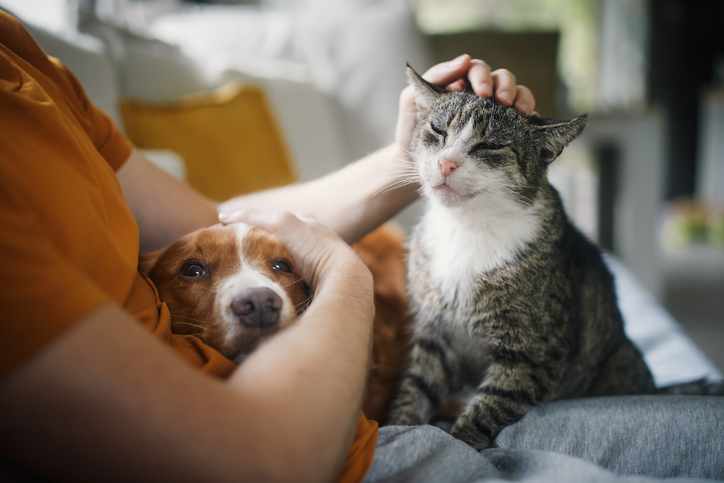For those working on an estate plan, the fate of their beloved animal companions might also be a consideration. By creating an estate plan specifically for your pets, you can help protect their well-being and maintain continuity of their care in the event of your passing or incapacity.
If you’d like someone to walk you through the process of estate planning for your pets, a financial advisor may be able to help.
Understanding Estate Planning for Pets
Creating an estate plan for your pet involves making legal arrangements to ensure that your pets are cared for if you become unable to care for them. One of the most effective tools is a pet trust. This is a legal arrangement that provides for the care of your pets in the event of your death or if you become incapacitated.
What Is a Pet Trust?
A pet trust is a legal document that outlines how your pets should be cared for after you’re gone. It allows you to set aside funds specifically for the care of your pets and appoints a trustee to manage these funds. The trustee is responsible for disbursing the funds to the caregiver you designate, according to the instructions you provide in the trust.
Why Use a Pet Trust?
Using a pet trust as part of estate planning can offer your pets several advantages:
- It provides a clear, legally enforceable plan for your pet’s care. Unlike informal agreements, a pet trust is recognized by law, meaning that the funds and instructions you set aside must be followed.
- A pet trust can help prevent disputes among family members or potential caregivers. By clearly stating who is responsible for your pets and how they will be provided for, you minimize the risk of misunderstandings or disagreements.
- It can detail specific instructions for your pet’s care. You can specify everything from dietary needs to medical care and exercise routines. This aims to preserve the quality of life that your pets had under your care.
- A pet trust can set funds aside for your pet. This can be especially important for pets with special needs or that might require expensive veterinary treatments.
Steps to Secure Your Pet’s Future

When planning an estate for your pets, there are several steps you can take to help them get the care and attention they deserve when you’re no longer around. Here are four general steps to help you get started:
- Decide who will care for your pet: Selecting a caretaker is one of the most important aspects of estate planning for pets. This person should be trustworthy, responsible and genuinely fond of your pet. It’s essential to have an open conversation with potential caretakers to ensure they’re willing and able to take on the responsibility. Consider naming a backup caretaker as well, in case the primary choice is unable to fulfill the role when the time comes.
- Figure out finances: Allocating funds for your pet’s future care is also important when estate planning for pets. Estimate the costs of food, veterinary care, grooming and other necessities to determine an appropriate amount. This financial provision can be included in your will or established through a pet trust, which sets aside money specifically for your pet’s care.
- Picking a trustee: The trustee manages the funds allocated for your pet’s care. This person should be financially responsible and trustworthy, as they will oversee the disbursement of funds to the caretaker. The trustee and the caretaker can be the same person, but having separate individuals can provide an additional layer of accountability.
- Finalizing your plan: Once the key decisions are made, formalize your estate plan with the help of a legal professional. This can help you make all documents legally binding. Regularly reviewing and updating your plan as circumstances change will also help you keep it effective and reflective of your wishes.
Bottom Line

By carefully selecting a caretaker, allocating finances and appointing a trustee, pet owners can create a comprehensive estate plan that addresses all aspects of their pets’ future needs. This can help safeguard the welfare of your pets and provide you peace of mind, knowing that you are securing a loving and stable future for your companions.
Estate Planning Tips
- If you’re creating a financial plan, a financial advisor can help. Finding a financial advisor doesn’t have to be hard. SmartAsset’s free tool matches you with up to three vetted financial advisors who serve your area, and you can have a free introductory call with your advisor matches to decide which one you feel is right for you. If you’re ready to find an advisor who can help you achieve your financial goals, get started now.
- Pet trusts are established like any other trust fund, so it can be helpful to take a look at how trusts are created.
Photo credit: ©iStock.com/fcscafeine, ©iStock.com/Chalabala, ©iStock.com/adamkaz
